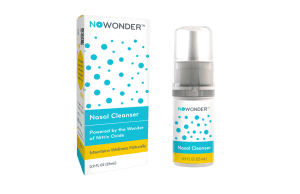 Sudden cardiac failure is a major health concern worldwide. It can strike without warning and is often linked to underlying heart problems that a person may not even know they have. In recent years, researchers have looked into the role of polyunsaturated fatty acids (PUFAs) as a possible way to lower the risk. But first, it’s necessary to distinguish between the two main types of PUFAs, because there are significantly divergent effects when it comes to fatty acids and heart health.
Sudden cardiac failure is a major health concern worldwide. It can strike without warning and is often linked to underlying heart problems that a person may not even know they have. In recent years, researchers have looked into the role of polyunsaturated fatty acids (PUFAs) as a possible way to lower the risk. But first, it’s necessary to distinguish between the two main types of PUFAs, because there are significantly divergent effects when it comes to fatty acids and heart health.
How omega-3 differs from omega-6 and why that matters for heart health
Omega-3 and omega-6 are both types of polyunsaturated fats. The body needs both of them for normal function, but they play very different roles, especially when it comes to heart health and inflammation.
What they have in common:
- Both are essential fatty acids, meaning the body cannot make them on its own.
- Both help build cell membranes and support brain function.
- Both are found in food and supplements, and are part of a healthy diet in the right amounts.
Key differences:
| Feature | Omega-3 | Omega-6 |
| Main types | EPA, DHA, ALA | Linoleic acid (LA), arachidonic acid (AA) |
| Common sources | Fatty fish (salmon, sardines), flaxseeds, chia | Vegetable oils (corn, soybean, sunflower), nuts |
| Role in the body | Reduces inflammation, stabilizes heart rhythm | Promotes inflammation (needed for healing) |
| Effects on the heart | May reduce risk of arrhythmia, VT, SCA | May promote artery stiffness in excess |
| Blood clotting | Makes blood less sticky (anti-clotting) | Makes blood more likely to clot |
| Balance in the diet | Often too low in modern diets | Often too high in modern diets |
Why the ratio matters 
The ideal balance between omega-6 and omega-3 is still debated, but most experts agree that modern diets are too heavy in omega-6 and too light in omega-3. A typical Western diet may contain a ratio of 15:1 or higher (omega-6 to omega-3), while a healthier range is believed to be closer to 4:1 or 2:1.
This imbalance may lead to:
- Increased inflammation
- Greater risk of coronary artery disease
- Higher chance of blood clots and cardiac remodeling
Omega-6 fats are not “bad,” but too much of them, without enough omega-3, can upset the body’s balance. That’s why increasing omega-3 intake through diet or supplements (like Lovaza and Zoomind) may help reduce the risk of sudden cardiac arrest and improve overall cardiovascular function.
In summary:
- Omega-3s are heart-friendly and anti-inflammatory.
- Omega-6s are essential but can promote inflammation when over-consumed.
- People benefit most from eating more omega-3-rich foods or taking a supplement, while keeping omega-6 sources (especially processed oils) in moderation.
More about omega-3 fatty acids
 Omega-3s are well known for their ability to support heart health. They help regulate the heartbeat, lower inflammation, and may protect against certain types of dangerous rhythms. These effects are especially important in people with conditions like coronary artery disease, heart failure, or hypertension. Some studies suggest that people with low omega-3 levels might face a higher risk of dangerous heart events, including sudden cardiac arrest (SCA) and ventricular fibrillation (VF).
Omega-3s are well known for their ability to support heart health. They help regulate the heartbeat, lower inflammation, and may protect against certain types of dangerous rhythms. These effects are especially important in people with conditions like coronary artery disease, heart failure, or hypertension. Some studies suggest that people with low omega-3 levels might face a higher risk of dangerous heart events, including sudden cardiac arrest (SCA) and ventricular fibrillation (VF).
Although omega-3s are not in themselves a cure, they appear to help prevent the kind of cardiac remodeling and abnormal rhythms that lead to ventricular tachycardia (VT) and sudden death. That’s why many doctors consider them as part of a broader heart health plan, particularly for people who’ve had a myocardial infarction, or have left ventricular hypertrophy, valve disease, or a history of atrial fibrillation burden.
How omega-3 fatty acids support heart rhythm
Omega-3 fatty acids help stabilize the heart’s electrical system. In simple terms, they make it less likely for the heart to beat out of rhythm. This is especially helpful in people who are prone to:
- Arrhythmia
- Irregular heartbeat
- Atrial flutter
- Palpitations
These symptoms can sometimes lead to more serious conditions like ventricular fibrillation or sudden cardiac arrest, especially in people with existing heart disease.
Omega-3s may lower this risk by:
- Reducing inflammation inside blood vessels
- Improving blood flow
- Helping heart cells communicate more steadily
The role of PUFAs in patients with existing heart disease
People with coronary artery disease or heart failure often face a higher risk of sudden cardiac failure. In these cases, omega-3 supplements like Zoomind or medications like Lovaza may help by:
- Lowering harmful fat levels in the blood (such as triglycerides)
- Supporting healthier blood pressure in those with hypertension
- Possibly lowering the chance of repeat heart attacks after a myocardial infarction
Lovaza is a prescription version of omega-3-acid ethyl esters. It is approved by the FDA to treat very high triglyceride levels. While it does not replace heart medications, it may be added to them for extra support. Zoomind is a natural supplement that is primarily aimed at providing the necessary components for healthy growth, especially for people with attention-deficit/hyperactivity disorder (ADHD), and it’s rich in the right forms of omega-3, especially EPA and DHA.
What is cardiac remodeling, and why does it matter?
Cardiac remodeling is a process where the heart’s shape and function change, usually after damage from a heart attack or years of high blood pressure. This process can make the heart weaker and more likely to experience abnormal rhythms. These changes may result in:
- Left ventricular hypertrophy (thickening of the heart muscle)
- Weakened heart contractions
- Higher risk of sudden cardiac arrest
Omega-3s may help slow or reverse some of this remodeling by supporting cell repair and reducing scarring in the heart muscle.
Other conditions linked to higher cardiac risk
Besides known heart conditions, some other health issues can increase the risk of sudden cardiac failure. These include:
- Sleep apnea, which stresses the heart during sleep
- Long-term fatigue or shortness of breath, which may be signs of undiagnosed heart failure
- High blood pressure and valve disease, which weaken heart performance over time
In many of these cases, omega-3s may offer some protection by reducing strain on the heart and lowering the risk of dangerous arrhythmias.
Summary of the benefits of omega-3
Omega-3 fatty acids appear to play a protective role against sudden cardiac arrest, particularly in people with underlying heart problems. While not a treatment for heart failure or coronary artery disease, omega-3s may help:
- Stabilize the heartbeat
- Reduce the risk of ventricular fibrillation
- Support overall heart health
For people at risk, adding omega-3s, either from diet or a product like Lovaza, may be one step toward a healthier heart. However, they should always be used alongside prescribed medications, not as a replacement.
Frequently asked questions
Can omega-3 lower your heart rate?
Yes, omega-3 fatty acids can have a mild slowing effect on heart rate. This is one of the ways they help stabilize the heart’s rhythm. A slower, more regular heartbeat reduces the chance of irregular patterns like atrial flutter or ventricular tachycardia. In some studies, people who regularly took omega-3 supplements had lower resting heart rates compared to those who didn’t.
Is there a downside to taking omega-3?
For most people, omega-3s are safe when taken as recommended. But getting sufficiently high doses just via diet has several potential consequences. It’s necessary to eat at least three main meals of the right fish (salmon, sardines, tuna) each week, and that’s expensive. So much fish oil can cause side effects like nausea, diarrhea, or a fishy after-effect. Supplements and properly dosed medications are a simpler, cheaper and more manageable option. Whichever course is taken, it’s always best to check with a doctor before starting large doses, especially if taking other medications for heart failure or coronary artery disease.
Can omega-3 cause atrial fibrillation?
This is still being debated. Some studies have suggested a possible link between very high doses of omega-3 and an increased risk of atrial fibrillation in certain people. However, most of the research shows that typical doses (under 3 grams per day) are not linked to higher risk. Anyone with a history of arrhythmia or irregular heartbeat should ask a doctor before starting omega-3 supplements.
What do cardiologists say about omega-3?
Most cardiologists agree that omega-3s have a place in heart care, especially for patients with high triglycerides or a history of heart attacks. They often recommend dietary sources like salmon, sardines, and mackerel. Prescription products like Lovaza may be used when lifestyle changes aren’t enough. However, cardiologists also warn against thinking of fish oil as a “cure-all”, it’s one piece of a bigger treatment plan.
Does omega-3 increase ejection fraction?
Ejection fraction is a measure of how well the heart pumps blood. Some small studies have shown slight improvements in people with heart failure, but results are mixed. Omega-3s may help reduce inflammation and stress on the heart, which could support better pumping action over time. However, they are not a replacement for heart medications or devices.
Is omega-3 good for seniors?
Yes, many seniors benefit from omega-3s, especially those with coronary artery disease, high blood pressure, or a history of myocardial infarction. Omega-3s support heart rhythm and may reduce the chance of future heart problems. Since seniors often take multiple medications, it’s a good idea to review supplement use with a healthcare provider.













